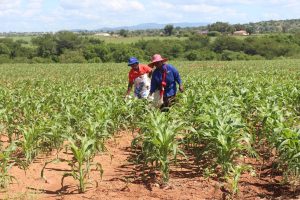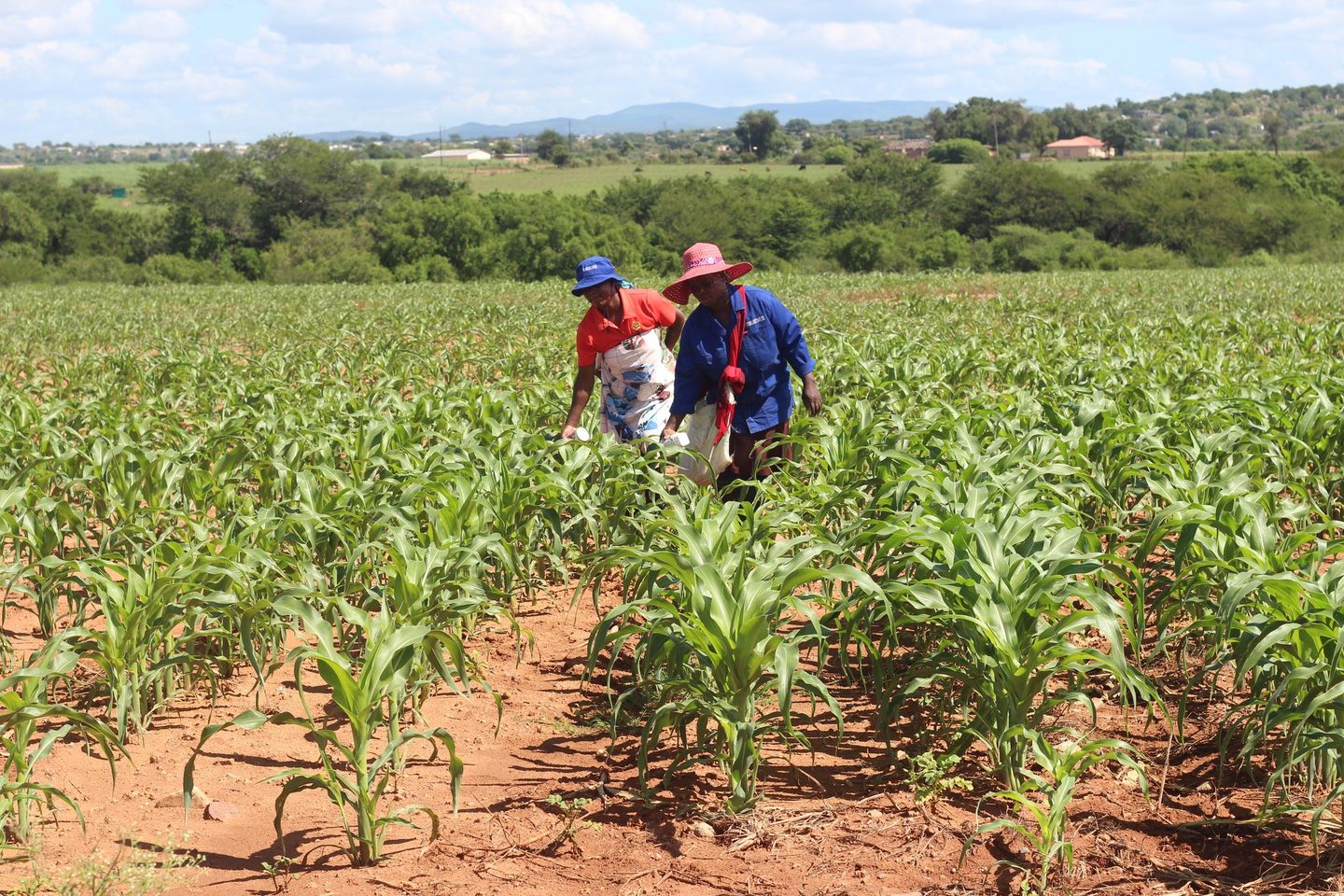By Ncaba Ntshakala
THE impacts of climate change are becoming increasingly evident in Southern Africa, and the repercussions on food security are alarming. In Eswatini, where over 80% of food supplies are imported, the vulnerabilities to these changes are stark.
Minister of Agriculture Mandla Tshawuka recently highlighted these concerns, revealing that the nation spends a staggering E2.2 billion annually on food imports.
He emphasized the urgent need for local agricultural production to mitigate this reliance, particularly as climate change continues to disrupt traditional farming practices across the region.
Eswatini is not alone in grappling with these challenges. Across Southern Africa, nations are experiencing erratic weather patterns, including severe heatwaves, prolonged droughts, and unexpected floods, all of which severely threaten agricultural productivity.
These climate shocks are compounded by the reliance of many countries on rain-fed agriculture, leaving farmers particularly vulnerable. South Africa, for instance, has faced reduced maize yields due to persistent droughts exacerbated by the El Niño phenomenon.
Similarly, Zimbabwe has seen its once-thriving agricultural sector buckle under erratic rainfall and pest invasions, leading to widespread food shortages.
Research by Charles Samuel Mutengwa et al. highlights the gravity of the situation, noting that Southern Africa is the region most vulnerable to climate change due to its heavy dependence on agriculture and low adaptive capacity.
The study highlights the plight of smallholder farmers, who lack the resources and infrastructure to adopt climate-resilient practices.
These farmers form the backbone of food production in rural areas, yet they remain disproportionately affected by climate shocks.
RELATED: LeapFrog plans $500 million investment in Asian and African climate transition firms
In Eswatini, the situation mirrors these regional trends. The country’s agricultural sector has struggled to meet domestic food needs, a shortfall exacerbated by climate-related disruptions.
During the inauguration of the Magidza Dip Tank in the Hhohho region, Tshawuka encouraged farmers to leverage early rains to enhance production.
However, such efforts face significant hurdles, including limited access to climate-smart agriculture (CSA) technologies and inadequate support systems for small-scale farmers.
Mozambique provides another example of the impacts of climate change on food security. The country has faced repeated cyclones in recent years, devastating farmlands and displacing thousands.

Cyclone Idai in 2019 was particularly catastrophic, wiping out crops and causing widespread food shortages.
The country’s dependence on subsistence farming has made recovery slow and difficult, further exposing the region’s vulnerabilities to climate-induced disasters.
Botswana, too, has struggled with the effects of rising temperatures and changing rainfall patterns. Livestock farming, a cornerstone of Botswana’s economy, has suffered immensely as pastures dry up and water becomes scarcer.
The resulting declines in meat and dairy production have had far-reaching economic implications, illustrating how climate change transcends agricultural boundaries to impact broader economic stability.
An economist in Eswatini provided a sobering analysis of the situation, warning that the region’s reliance on food imports could lead to cascading economic repercussions.
“When countries like South Africa and Zimbabwe, from which we import most of our food, experience agricultural shortfalls, the ripple effects are immediate.
Prices rise, supply chains falter, and the most vulnerable populations bear the brunt. This is not just an agricultural issue; it’s a systemic economic challenge,” the economist said.
The need for robust mitigation strategies is urgent. Climate-smart agriculture, which integrates sustainable practices to boost productivity, resilience, and environmental stewardship, has been touted as a potential solution.
RELATED: Eswatini calls for equitable climate action, streamlined financing at COP29
However, as the research by Mutengwa et al. points out, the adoption of CSA remains in its infancy in Southern Africa. Limited resources, inadequate infrastructure, and weak policy frameworks have hindered its widespread implementation.
Moreover, Eswatini’s heavy reliance on food imports also highlights the interconnectedness of the region’s food security.
When neighbouring countries face agricultural challenges, the effects ripple across borders. This expresses the importance of regional cooperation in addressing climate change.
Nations must work together to promote sustainable agricultural practices, share resources, and strengthen food systems against climate shocks.
Malawi, which has experienced recurring droughts, offers a glimpse into the potential of CSA. Through initiatives supported by international organizations, smallholder farmers in Malawi have adopted techniques like crop rotation, drought-resistant seeds, and efficient irrigation methods.
While challenges remain, these efforts have shown promise in enhancing resilience and reducing vulnerability to climate shocks.
Again, for Eswatini, the road ahead requires a multipronged approach. Boosting local food production is paramount, as emphasized by Tshawuka.
The government must invest in infrastructure, provide farmers with access to climate-resilient technologies, and strengthen support systems for smallholders.
Additionally, public-private partnerships could play a crucial role in driving innovation and resource mobilization in the agricultural sector.


